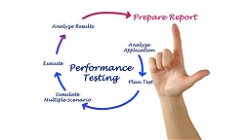Strategies and Advice for Marketing a Small Business
Vihaan Disouza
. 2 min read
If you lack business sense, it doesn't matter if you are the most skilled accountant, resume writer, or artisanal baker in the world because your small business will eventually suffer the consequences. On paper, you are a business owner as soon as you have obtained the necessary permits and licenses, incorporated your business, and are selling a legitimate good or service to customers. In today's digital era, there are numerous apps available that can assist small business owners in managing various aspects of their operations. These apps offer a wide range of functionalities, from accounting and inventory management to marketing and customer relationship management.

Promote and Disseminate the Content Generated by Users
Content that was generated by users is similar to having free advertising in the form of people praising your brand. They are sincere testimonials that can assist you in promoting yourself to a wider audience. In point of fact, a significant number of individuals take this content more seriously than paid advertisements and product descriptions, and they frequently look into it before making a purchase decision.
Develop Your Own Personal Referral Network
Cooperating with one another is one of the most beneficial things that small businesses can do for themselves. If you provide services that are targeted toward a particular market segment, you should look for other service providers operating in similar areas with whom you could form a referral partnership. For instance, a wedding planner might keep a small selection of photographers on hand.
Become Familiar with Your Brand
A small company needs to establish a brand identity so that its customers will know who they are, what they do, and what they stand for in the marketplace. After a company has decided what its core values are, it needs to match those values with a suitable name, logo, color scheme, and imagery that effectively conveys its brand to consumers.
Streamline the Website in Question
These days, your website is the most important part of your business. Even if you don't make much of a profit from selling things on the internet, the vast majority of consumers will look into a business via the web before making a purchase from them. This is the reason why your website needs to stand out. Don't fall into the trap of thinking that content will bring visibility to your company online.
Improve Your Emails and Newsletters
You should never undervalue the benefits that can be gained from offering email and newsletter subscriptions on your website. It is a way to keep visitors engaged with your company and provides you with an excellent platform to market things such as specials, discounts, and coupons that are only available to subscribers.
Participate in Loyalty and Affiliate Programs to Gain Your Customers' Attention
Incorporating customer loyalty and affiliate programs into your marketing strategies can assist in growing the size of your existing customer base. Customers who consistently purchase from you should be rewarded through a loyalty program. Customers will remain satisfied, and you will have a better chance of increasing your profits.
More Stories from
Boost Your Business with Online Reviews: Strategies to Encourage Customer Feedback
This article emphasizes the importance of online reviews for businesses and provides strategies to encourage customers to leave feedback.
Key Benefits of Using a Project Management Tool in Your Business
This article discusses the importance of having a social media workflow for businesses to effectively create and manage their social media content.
Unlocking Business Growth: Harness the Power of Web Solutions
Embrace the power of the internet to unlock your business's true potential and propel it towards unprecedented growth.
Embracing the Remote Work Revolution: Pros and Cons for Businesses and Employees
This article explores the significant growth of remote work over the past decade, driven by technological advancements and changing work cultures.
A Comprehensive Guide to Performance Testing: Stages, Metrics, and Tools
It explores the importance of performance testing in the development lifecycle, the types of performance testing, and the metrics used to measure performance.






.png?width=40&aspect_ratio=1:1)



.png?width=40&aspect_ratio=1:1)
